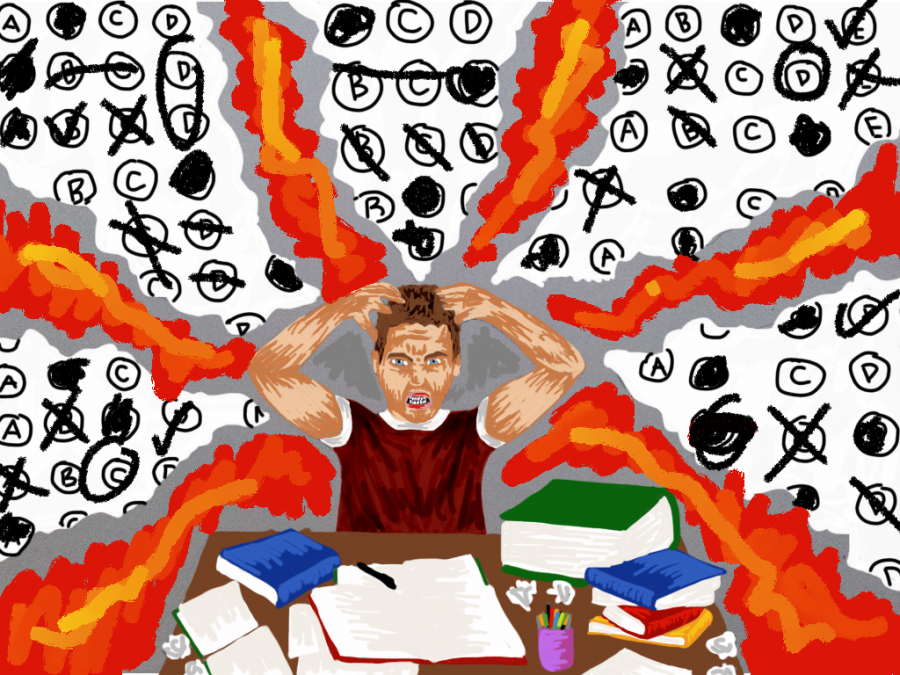Opinion: De-Standardizing Standardized Tests
Because of standardized tests, real education has been replaced with test taking strategies
October 30, 2019
While standardized tests are taken at most public schools in the United States (US), it’s not clear why. For two main reasons, standardized tests should not be part of the US school system, or at least not mandatory. First and most importantly, these tests exist for political and economic reasons not for educational ones. Secondly, standardized tests encourage teaching to the test. Teachers focus too much on preparing students for the test, devaluing learning.
Standardized testing has strayed from its original purpose of providing a universal benchmark for schools and is now a cash cow for corporations. Politicians, the servants of the corporations, can promise to make scores better. Certain companies like CTB McGraw-Hill, Houghton Mifflin, Pearson and Harcourt dominate the market with nonprofit organizations while their owners make millions of dollars. According to The National Board on Educational Testing and Public Policy at Boston College, the standardized testing market was anywhere between $400 million and $700 million. While making money isn’t a bad thing, commodifying young people’s education is. When a company makes millions of dollars, you’d think they did their job well, right? Wrong. One hilarious example of this is “pineapplegate,” when a standardized test for eighth-graders had an absurd story and comprehension questions about a pineapple racing a hare.
These companies are constantly creating new standards. They sell slightly edited new editions by convincing schools that the old version is outdated. If schools don’t adopt new editions, they will be pressured to sooner or later. As Shael Polakow-Suransky, the chief academic officer of New York City schools has said, “There’s lots and lots of books that have got fancy, pretty stickers on them… but they actually haven’t changed anything in the inside.”
Furthermore, by promising better scores, politicians gain votes. So even if politicians have an incoherent educational agenda, just the act of promising better scores can improve their popularity. One of the effects of their agendas is sometimes an increased amount of standardized testing, as seen by Bush’s No Child Left Behind. Politicians use the promise of policies that will better scores to gain support, but in doing so they diminish the value of education by reducing it to just a campaign tactic.
Lastly, when there are as many standardized tests as there currently are (112 from kindergarten through high school) teachers sometimes prepare their students for these tests. But in doing so, they can sometimes make the mistake of valuing the testing of the students over the education of the students. So the students can know all the tricks to take a multiple-choice test in all the different categories, but they could have learned the material better if they had just learned it in the first place instead of having to learn how to take a test. Not everyone is equal in their test-taking abilities; this leads to misrepresentative scores for students who are either good or bad test takers.
Education allows us to stand on the shoulders of giants. In a day, we can absorb knowledge that has taken thousands of years to acquire. It allows us to see the many mistakes that humans have made and learn from them; it allows us to see things from a more knowledgeable perspective; it allows for real democracy in which a rational and informed society votes. Without either of those—both of which education provides—it is hardly a democracy. I say all this to emphasize the extreme importance of education. With this importance in mind, standardized tests are highly distressing because of the way they exploit education for companies’ and politicians’ benefit. Education should not be marketed and sold like a product by greedy companies, and it should not be stepped on like a stair by popularity-seeking politicians.














